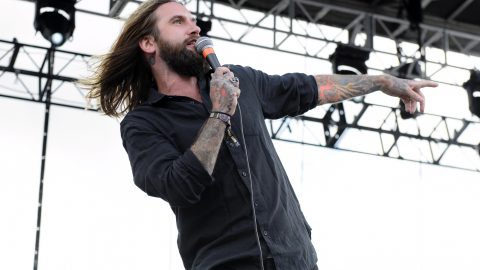NME Music News, Reviews, Videos, Galleries, Tickets and Blogs | NME.COM

Music industry figures are warning that artists, musicians and crew remain in crisis, amid fears that they will not be protected by the government’s £1.57billion bailout for venues and arts spaces.
Last week, more than 1,500 artists and industry figures came together to call on the government to stop “catastrophic damage” to live music as part of the #LetTheMusicPlay campaign. After months of campaigning from fans and the world of music, the government finally stepped in with an unprecedented cash injection to help the arts, culture and heritage industries “weather the impact of coronavirus” – providing music venues, independent cinemas, museums, galleries, theatres and heritage sites with emergency grants and loans.
While the relief for venues is welcome, it is now being warned that without urgent government clarity, support and action, the pipeline of talent that plays within them could be cut short.
David Martin is the General Manager of the Featured Artists Coalition – a nonprofit organisation who campaign and lobby for artists and musicians.
“During the #LetTheMusicPlay campaign, it was artists that we heard,” Martin told NME. “It was artists that raised their voices to ask Government to recognise the UK music industry and its contribution to our economy and national identity. The public responded with an enormous groundswell of support, backing those artists and making the campaign trend across social media globally. As we welcome the unprecedented £1.57billion arts package, we urge Oliver Dowden and Rishi Sunak to ensure that those artists and creators are not forgotten.”
He continued: “As many as 38% of artists have fallen through the gaps between income support schemes and have received nothing for almost four months. Those that have had support will soon see that lifeline come to an end. With no date in sight for a full return to live music, most will not be able to work for many more months. It is imperative that those that have been left out or cannot return to work are supported and that the arts fund extends to supporting the people that make our sector not just the places.
“What are our venues, festivals, arenas and theatres without artists and performers? Silent.”

Musicians’ Union General Secretary Horace Trubridge agreed that while it was good news that venues and establishments had a lifeline, something must also be done for the people who perform in them and allow them to operate.
“It’s very good news for institutions, organisations, hallowed halls and music venues, but there’s nothing in there that I’ve been able to put my finger on that actually gives any financial support to the workforce – the musicians, the road crews and lord knows what else,” he told NME. “It all seems to be earmarked for premises. That’s great, but the self-employed income support scheme and the job retention scheme are coming to an end soon. Some of our members were able to qualify for those two schemes, but lots of them weren’t.
“They just fell through the gaps. What we really need to see is some kind of sector-specific financial support package for musicians and ancillary workers until they can get proper work again. That’s just not on the horizon at the moment.”

Back in April, the Musicians Union surveyed their members to find that 19% were considering quitting a career in music due to a lack of government support during lockdown. Now he fears that number may be much higher.
“It’s hard for the musicians like the bands played by BBC 6 Music who were looking forward to a festival season where they can earn quite a decent amount of money playing across Europe, but they’ve lost all of that,” said Trubridge.
“Because of the nature of the streaming model, bands just don’t otherwise make enough to pay the bills. Some of my favourites like Squid, Black Midi and Fontaines DC make all their money from playing festivals. Fontaines could have played a festival for 10 or 15 grand. My god, they’d have to do a lot of streams to make that money from Spotify.”
With an uncertain future, Trubridge admitted that he feared that young creators may be less likely to want to enter the world of music.
“I worry about the future of the industry because we rely so much on new talent coming through all the time,” he said. “Any young people looking at being in a band and getting things off the ground are just going to think it’s impossible now. When will there ever be a moshpit again? When will there ever be live gigs that people can cram into? It’s not on the horizon.”
Yesterday it was announced that outdoor gigs and arts performances will be able to resume from this Saturday (July 11), providing they have a “limited and socially distanced audience”, while a number of small indoor “test events” will also take place in order to help plan the future reopening of venues. Although a welcome development, Trubridge said that it was just a drop in the ocean for what’s needed to get artists and crew back to work.
“I’ve been pushing really hard just to get outdoor music allowed,” he said. “That’s great and will give some opportunities to musicians, but to the kind of musicians who are used to playing sweaty gigs in clubs, a pub garden or restaurant piazza really isn’t their scene. There’s a big hole for cutting edge new bands and no opportunity.”
He added: “The Musicians’ Union hasn’t had a crisis like this since the 1920s when movies with talking first came in. Silent movies meant great employment for musicians because cinemas had orchestras and string quartets. As soon as the talkies came in, they got shot of them all. It is looking bleak.”
“There’s nothing there for us at the moment, and we need financial support. This industry is worth £5.2billion per year to the economy. The treasury can’t afford to lose all that money in the long run, so put your hand in your pocket now and make sure that the talent stays.”
Tom Watson, former Labour Deputy Leader and Shadow Culture Secretary and now Chair of the body UK Music, also said he’s fighting for the “many thousands of people in music who are struggling to put food on the table”.
“My heart goes out to them,” he told NME. “It’s not even about paying rent or bills, it’s how do they stave off being hungry? The MU are right – musicians have lost tens of millions of pounds of income.
If wages fall or people cannot pay bills, then the sector retracts and it takes time to attract people back in. I’m extremely concerned that if the sector contracts extremely quickly and we lose talented people that are at the heart of what we do, then it will take years to grow again.”
NME has contacted the Department for Digital, Culture, Media & Sport for a response.
Meanwhile, the Association Of Independent Festivals have called upon the government for “urgent clarity” as to whether festivals will also benefit from their £1.57billion arts bailout – or else face huge losses themselves in the year ahead.
The post #LetTheMusicPlay: Musicians and crew “facing biggest crisis since the 1920s” appeared first on NME Music News, Reviews, Videos, Galleries, Tickets and Blogs | NME.COM.




